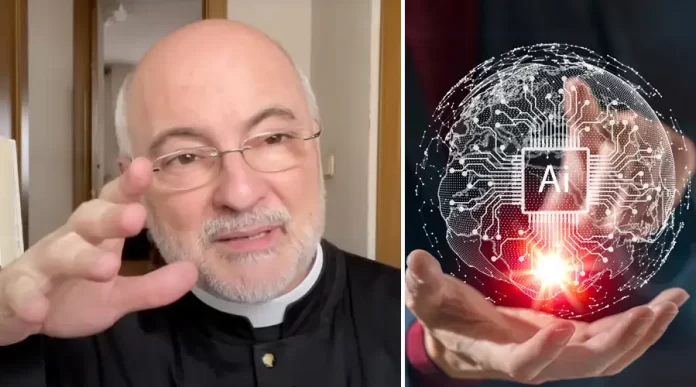Fr. José Antonio Fortea, Doctor of Theology from the Pontifical Regina Apostolorum Athenaeum in Rome, assured that “it is impossible to create true artificial intelligence” (AI) in a video posted on his YouTube channel a few days ago. The priest offered a reflection “based on our faith in God” and noted that “for us believers, it is impossible for science to create true rationality.”
“I repeat, it is impossible to create true artificial intelligence because no matter how impressive the programs are, those computers (computers) will produce according to the guidelines that they have in their programming,” he continued.
In this sense, the priest highlighted, “A computer can surprise us with the data it gives us, but nothing will come out of what it puts in.”
In the reflection that the priest offered after weeks of public debate on AI and its applications, Fr. Fortea gave an example: “Someone who is handling a calculator may be surprised by the results, but the calculator does nothing outside of that to what was programmed”, even if it performs “amazingly complex operations”.
The priest considered that the machine can “learn” or achieve a certain level of “learning”, but it cannot be compared to a human being who does have rationality.
In the case of machines and devices, he continued, “everything they learn will flow through the grooves arranged from the beginning.” “It’s like a ball that falls and has different paths and the floodgates close, others open and the ball falls where a program says” designed by human intelligence, he added.
In general terms, it can be said that artificial intelligence (AI) is the combination of algorithms to create machines, programs or devices that resemble the reasoning abilities of human beings.
In recent months, the concept has become popular, and AI-based tools such as ChatGPT, which can produce various texts, or Midjourney, which allows the creation of images, are within the reach of Internet users.
In this regard, Dr. Eugene Gan, a professor at the Franciscan University of Steubenville who has studied the subject for 30 years, stressed in February of this year that, although it appears human, artificial intelligence “will not have a soul.”
On the other hand, a prominent artificial intelligence researcher and recently retired from Google, Geoffrey Hinton warned that this technology is developing at a “terrifying” rate and that it should not spread beyond the ability to control it.



